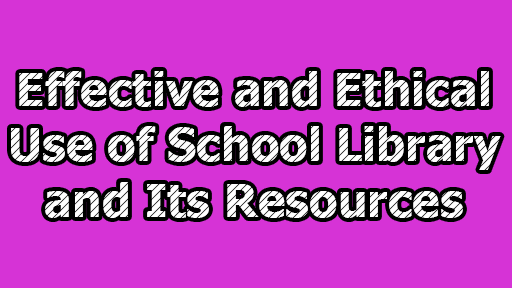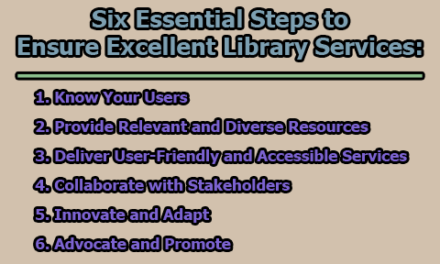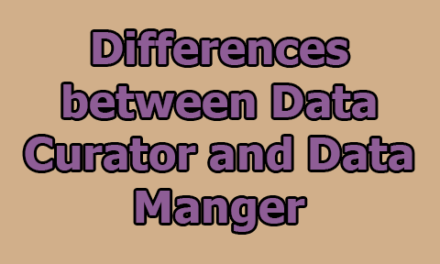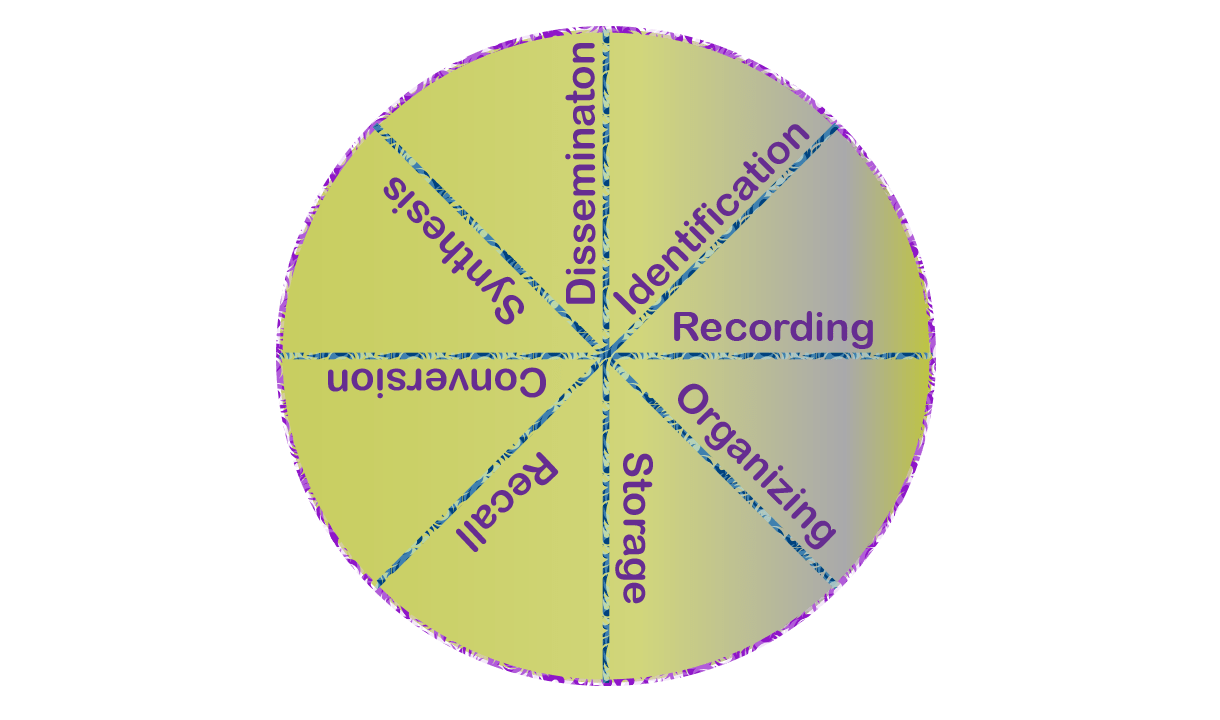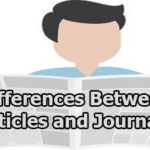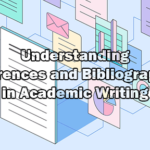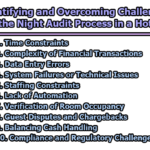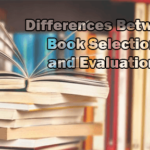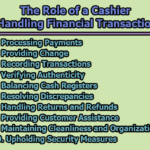Effective and Ethical Use of School Library and Its Resources:
The school library is a vital component of the educational system, providing students with access to a wide range of resources to support their learning and development. However, the effective and ethical use of the school library and its resources is essential to maximize the benefits while ensuring responsible and respectful behavior. This article explores various aspects of utilizing the school library effectively and ethically, including information literacy, responsible borrowing, digital citizenship, academic integrity, and promoting inclusivity. By following these principles, students can make the most of the library’s resources and foster a culture of respect, integrity, and lifelong learning.
Importance of the school library:
The school library serves as a hub of knowledge and information, providing students with resources to support their academic pursuits, promote independent learning, and foster a love for reading. It offers a diverse collection of books, periodicals, digital materials, and technology resources, enabling students to explore various subjects, expand their knowledge, and develop critical thinking skills. Moreover, the school library serves as a safe and inclusive space for students to study, collaborate, and engage in research activities.
Purpose and objectives of the guide:
The purpose of this guide is to provide students with a comprehensive understanding of the effective and ethical use of the school library and its resources. By following the principles outlined in this guide, students will be able to make the most of the library’s offerings while upholding ethical standards and responsible behavior. The objectives of this guide include:
- Developing information literacy skills.
- Promoting responsible borrowing practices.
- Encouraging digital citizenship.
- Fostering academic integrity.
- Promoting inclusivity and diversity.
- Facilitating collaboration between librarians and teachers.
- Encouraging lifelong learning.
Information Literacy:
Defining information literacy: Information literacy is the ability to recognize when information is needed, locate and evaluate relevant information, and effectively and ethically use that information to accomplish a specific purpose. It involves critical thinking, problem-solving, and communication skills. Developing information literacy skills is crucial for students to navigate the vast amount of information available and make informed decisions.
Developing information literacy skills: This section discusses various strategies to develop information literacy skills, including:
- Understanding the research process.
- Identifying reliable sources of information.
- Evaluating the credibility of sources.
- Utilizing effective search techniques.
- Organizing and synthesizing information.
- Citing and documenting sources correctly
The role of the school library in promoting information literacy: Librarians play a key role in promoting information literacy by collaborating with teachers to integrate information literacy instruction into the curriculum, providing guidance on research methods, and offering workshops and resources to develop students’ information literacy skills. The school library also provides access to databases, reference materials, and other resources to support students’ information needs.
Strategies for effective information seeking: This section explores strategies for effective information seeking, including defining research questions, using appropriate keywords, utilizing advanced search techniques, evaluating search results, and using specialized databases and catalogs. Additionally, it emphasizes the importance of critically evaluating information sources to ensure reliability and relevance.
Responsible Borrowing:
Understanding the borrowing process: This section provides an overview of the borrowing process in the school library, including how to register as a library user, borrowing limits, loan periods, and reservation systems. Understanding the borrowing process helps students navigate library policies and procedures effectively.
Library policies and procedures: It is crucial for students to familiarize themselves with the library’s policies and procedures to ensure responsible borrowing. This section covers topics such as loan periods, renewals, returning materials, handling overdue items, and consequences for violating library rules. By adhering to these policies, students can maintain a respectful and efficient borrowing system.
Taking care of borrowed materials: Responsible borrowing involves taking care of borrowed materials to ensure their longevity and availability for others. This section discusses best practices for handling books, periodicals, digital resources, and other library materials, including keeping them in good condition, avoiding damage, and reporting any issues promptly.
Renewing and returning materials on time: Renewing materials on time is essential to avoid late fees and ensure equitable access for other library users. This section provides guidance on renewing materials through various methods, such as online portals or in-person interactions. Additionally, it emphasizes the importance of returning materials by their due dates to maintain a fair borrowing system.
Handling overdue materials responsibly: Occasionally, students may face situations where they are unable to return materials on time. This section outlines responsible practices for handling overdue materials, including communicating with library staff, paying fines if applicable, and taking steps to prevent future overdue situations.
Digital Citizenship:
The importance of digital citizenship in the school library: Digital citizenship refers to the responsible and ethical use of technology, including online behavior, digital communication, and information consumption. This section explains the significance of digital citizenship in the context of the school library and highlights the need to promote ethical and respectful online conduct.
Respecting intellectual property rights: Respecting intellectual property rights is a fundamental aspect of digital citizenship. This section discusses copyright laws, fair use guidelines, Creative Commons licenses, and plagiarism to help students understand the importance of crediting and respecting the work of others. It also provides guidelines on properly citing sources and avoiding plagiarism in research projects.
Evaluating online information: With the vast amount of information available online, students need to develop skills to evaluate the credibility and reliability of sources. This section introduces strategies for critically assessing online information, including examining the author’s credentials, checking for bias, evaluating website credibility, and cross-referencing information.
Privacy and online safety: Protecting privacy and maintaining online safety are vital in the digital age. This section explores best practices for safeguarding personal information, using secure passwords, being cautious of phishing attempts, and reporting any online safety concerns to appropriate authorities. It also addresses the potential risks of social media and offers guidance on responsible online communication.
Ethical use of technology resources in the library: The school library often provides access to various technology resources, such as computers, tablets, and internet access. This section highlights the responsible and ethical use of these resources, including adhering to acceptable use policies, using technology responsibly, and respecting the rights of others to access and utilize these resources.
Academic Integrity:
Defining academic integrity: Academic integrity encompasses honesty, trust, and fairness in academic pursuits. This section defines academic integrity and emphasizes its importance in fostering a culture of learning, credibility, and respect.
The role of the school library in promoting academic integrity: Libraries play a vital role in promoting academic integrity by providing resources, guidance, and support to students. This section discusses the ways in which librarians can collaborate with teachers to promote academic integrity, such as teaching citation methods, providing resources on academic honesty, and encouraging responsible research practices.
Understanding plagiarism and how to avoid it: Plagiarism is a serious offense that undermines academic integrity. This section defines plagiarism, discusses its various forms, and provides guidance on how to avoid it. It explores proper citation methods, paraphrasing techniques, and the importance of giving credit to original authors.
Citing sources correctly: This section delves into the importance of citing sources correctly and provides guidelines for various citation styles commonly used in academic research. It covers in-text citations, bibliographies, reference lists, and the use of citation management tools to ensure accurate and consistent referencing.
Collaboration and ethical group work: Collaboration and group work are integral to the educational experience. This section explores ethical considerations when collaborating with peers, such as contributing equitably, acknowledging individual contributions, and upholding academic honesty when working on group projects. It also provides guidance on effective collaboration strategies and conflict resolution.
Promoting Inclusivity:
Creating an inclusive library environment: Inclusivity in the school library ensures that all students, regardless of their backgrounds, abilities, or interests, feel welcome and supported. This section explores strategies for creating an inclusive library environment, such as displaying diverse materials, incorporating multicultural literature, and providing comfortable and accessible spaces.
Diverse and inclusive collection development: Developing a diverse and inclusive collection is crucial for representing the needs and interests of all students. This section provides guidance on collection development strategies that prioritize diverse voices, cultures, and perspectives. It explores selecting books that reflect different identities, experiences, and backgrounds and encourages students’ input in shaping the library’s collection.
Sensitivity to cultural, religious, and individual differences: This section emphasizes the importance of sensitivity and respect for cultural, religious, and individual differences within the school library. It provides guidance on creating a welcoming environment, handling sensitive topics, and addressing potential biases or stereotypes in library resources.
Accessible resources for students with disabilities: The school library should ensure that its resources and services are accessible to students with disabilities. This section discusses strategies for providing accessible formats, assistive technologies, and accommodations to meet the diverse needs of students with disabilities. It highlights the importance of considering accessibility during collection development and ensuring physical spaces are inclusive.
Supporting diverse learning needs: Students have diverse learning needs and preferences. This section explores strategies for supporting diverse learning styles, such as offering a variety of resources and materials, providing different modes of access (print, digital, audio), and tailoring instructional support to individual students’ needs.
Collaboration between Librarians and Teachers:
Importance of collaboration: Collaboration between librarians and teachers is essential for maximizing the impact of the school library and its resources. This section explores the benefits of collaboration, including enhanced student learning outcomes, integrated curriculum support, and shared expertise.
Integrating library resources into the curriculum: This section discusses strategies for integrating library resources into the curriculum to enrich teaching and learning experiences. It explores how librarians can collaborate with teachers to align library materials with curriculum objectives, design engaging activities, and promote interdisciplinary learning.
Planning and implementing collaborative projects: Collaborative projects provide opportunities for students to apply their information literacy skills in real-world contexts. This section provides guidance on planning and implementing collaborative projects between librarians and teachers, including defining project goals, outlining roles and responsibilities, and assessing project outcomes.
Professional development opportunities for teachers and librarians: Continual professional development is crucial for both teachers and librarians to stay updated on best practices and emerging trends. This section explores professional development opportunities, such as workshops, conferences, webinars, and online courses, that promote collaboration and enhance their knowledge and skills.
Encouraging Lifelong Learning:
Fostering a love for reading: The school library plays a vital role in fostering a love for reading. This section explores strategies for promoting reading habits and encouraging students to develop a lifelong love for books. It includes initiatives such as author visits, book clubs, reading challenges, and creating a reading-friendly environment.
Engaging students in library programs and activities: Library programs and activities provide opportunities for students to explore various subjects, develop new skills, and engage with the library community. This section discusses different types of library programs and activities, such as workshops, exhibitions, literary events, and maker spaces, that encourage student participation and foster a sense of belonging.
Providing opportunities for independent research and exploration: The school library should offer resources and support for independent research and exploration. This section explores strategies for encouraging students to pursue independent projects, conduct in-depth research, and develop their own areas of interest. It discusses the role of librarians in guiding students through the research process and providing access to relevant resources.
The role of the library in supporting career development: The school library can play a significant role in supporting students’ career development. This section discusses ways in which librarians can assist students in exploring career options, providing access to career resources, and organizing workshops on resume writing, job searching, and interview skills.
Cultivating a culture of lifelong learning: Lifelong learning is essential in the fast-paced and ever-changing world. This section emphasizes the role of the school library in fostering a culture of lifelong learning by promoting curiosity, adaptability, and a growth mindset. It explores strategies for providing resources, programs, and opportunities that inspire students to continue learning beyond their school years.
In conclusion, the effective and ethical use of the school library and its resources is crucial for maximizing educational benefits and fostering a culture of respect, integrity, and lifelong learning. By developing information literacy skills, practicing responsible borrowing, cultivating digital citizenship, upholding academic integrity, promoting inclusivity, fostering collaboration, and encouraging lifelong learning, students can make the most of the school library’s resources and contribute to their own personal and academic growth. The collaborative efforts of librarians, teachers, and students are essential in creating an enriching and inclusive learning environment within the school library.
FAQs:
Why is the effective and ethical use of the school library and its resources important?
The effective and ethical use of the school library and its resources is important for several reasons. Firstly, it promotes information literacy skills, allowing students to critically evaluate and utilize information effectively. Secondly, it fosters responsible borrowing practices, ensuring equitable access to resources for all students. Thirdly, it cultivates digital citizenship, teaching students to navigate online information responsibly and ethically. Additionally, it upholds academic integrity, promoting honesty, integrity, and proper citation practices. Lastly, it promotes inclusivity, ensuring that the library’s resources cater to diverse learning needs and reflect a variety of perspectives and experiences.
How can students develop information literacy skills in the school library?
Students can develop information literacy skills by understanding the research process, identifying reliable sources, evaluating the credibility of information, utilizing effective search techniques, organizing and synthesizing information, and correctly citing and documenting sources. The school library plays a crucial role in promoting information literacy by offering guidance, resources, and instruction on research methods, source evaluation, and effective information-seeking strategies.
What are responsible borrowing practices in the school library?
Responsible borrowing practices in the school library involve understanding the borrowing process, familiarizing oneself with library policies and procedures, taking care of borrowed materials, renewing and returning materials on time, and handling overdue materials responsibly. Students should be aware of loan periods, borrowing limits, and reservation systems. They should handle library materials with care, avoiding damage and promptly reporting any issues. Students should renew materials on time and return them by their due dates to maintain a fair borrowing system. In the case of overdue materials, responsible practices include communicating with library staff, paying fines if applicable, and taking steps to prevent future overdue situations.
How can students practice digital citizenship in the school library?
Students can practice digital citizenship in the school library by respecting intellectual property rights, evaluating online information critically, maintaining the privacy and online safety, and using technology resources responsibly. Respecting intellectual property involves properly crediting and citing sources, understanding copyright laws, and avoiding plagiarism. Evaluating online information entails verifying the credibility and reliability of sources. Students should prioritize their online privacy and safety by protecting personal information, using secure passwords, and reporting any online safety concerns. They should also use technology resources in the library responsibly, adhering to acceptable use policies and respecting the rights of others.
What is academic integrity, and how can it be promoted in the school library?
Academic integrity refers to honesty, trust, and fairness in academic pursuits. It involves upholding ethical standards in research, writing, and collaboration. The school library promotes academic integrity by providing resources, guidance, and support to students. Librarians collaborate with teachers to teach citation methods, offer resources on academic honesty, and encourage responsible research practices. Students should understand and avoid plagiarism, cite sources correctly, and engage in ethical collaboration and group work. By emphasizing the importance of academic integrity and providing the necessary support, the school library plays a key role in promoting a culture of academic honesty.
How can the school library promote inclusivity in its resources and services?
The school library can promote inclusivity by creating an inclusive environment, developing a diverse and inclusive collection, being sensitive to cultural and individual differences, and providing accessible resources for students with disabilities. Creating an inclusive environment involves ensuring that students of all backgrounds and identities feel welcome and supported. Developing a diverse collection involves selecting materials that reflect different cultures, perspectives, and experiences. Sensitivity to cultural and individual differences requires avoiding biases and stereotypes in resources and interactions. Providing accessible resources involves offering formats and technologies that cater to diverse learning needs and making physical spaces accessible. By considering and addressing these aspects, the school library can ensure that its resources and services are inclusive and representative of the student population.
How can collaboration between librarians and teachers enhance the effective and ethical use of the school library and its resources?
Collaboration between librarians and teachers enhances the effective and ethical use of the school library and its resources by integrating library resources into the curriculum, planning and implementing collaborative projects, and providing professional development opportunities. By integrating library resources into the curriculum, librarians and teachers can enrich teaching and learning experiences, align resources with learning objectives, and promote interdisciplinary learning. Collaborative projects allow students to apply their information literacy skills in real-world contexts, fostering deeper learning and engagement. Professional development opportunities for teachers and librarians ensure that they stay updated on best practices, emerging trends, and new technologies, enhancing their ability to guide and support students effectively.
How does the school library encourage lifelong learning?
The school library encourages lifelong learning by fostering a love for reading, engaging students in library programs and activities, providing opportunities for independent research and exploration, and supporting career development. By promoting a love for reading, the school library instills a habit of lifelong learning and a curiosity for knowledge. Library programs and activities provide opportunities for students to explore various subjects, develop new skills, and engage with the library community, fostering a sense of continuous learning. The school library also supports independent research and exploration, allowing students to pursue their interests and develop a sense of autonomy in their learning journey. Furthermore, the library can provide resources and guidance for student’s career development, helping them explore different career paths and acquire essential skills for their future endeavors.
References:
- American Association of School Librarians. (2018). National School Library Standards for Learners, School Librarians, and School Libraries. American Library Association.
- American Library Association. (2019). Information Literacy Competency Standards for Higher Education.
- Barrow, L. H., & Nelson, N. J. (2017). Academic Libraries and the Academy: Strategies and Approaches to Demonstrate Your Value, Impact, and Return on Investment. Libraries Unlimited.
- Coiro, J., Knobel, M., Lankshear, C., & Leu, D. J. (Eds.). (2014). Handbook of Research on New Literacies. Routledge.
- Eisenberg, M. B., & Berkowitz, R. E. (2017). The Big6 in Middle School: Teaching Information and Communications Technology Skills. Linworth Publishing.
- Gordon, C. A. (2017). The Complete Guide to Using Google in Libraries: Instruction, Administration, and Staff Productivity. Rowman & Littlefield.
- Harada, V. H., & Yoshina, J. M. (2015). Assessing for Learning: Librarians and Teachers as Partners. ABC-CLIO.
- Lamb, A. (2016). Building Common Ground: Discussions of Inquiry Design and the School Librarian. ABC-CLIO.
- Loertscher, D. V., & Woolls, B. (2018). The New Learning Commons Where Learners Win!: Revised and Updated. Hi Willow Research & Publishing.
- Meyer, A., & Rose, D. H. (2014). Universal Design for Learning: Theory and Practice. CAST Professional Publishing.
- Schrock, K. (2016). Kathy Schrock’s Guide to Everything.
- Valenza, J. K. (2018). Revised School Library Standards: School Librarian’s Workshop. Libraries Unlimited.
- Wong, S. S., & Culp, K. M. (2018). The School Library Manager: Surviving and Thriving. Libraries Unlimited.

Former Student at Rajshahi University

